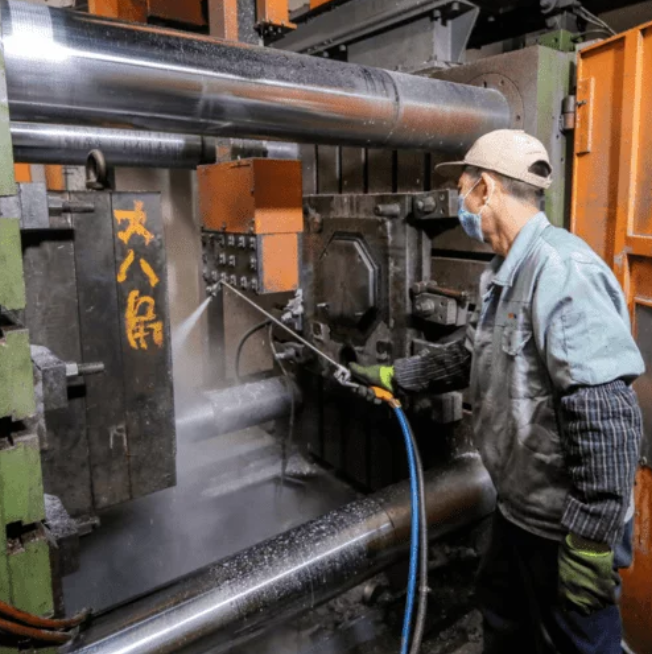Introduction
In recent years, there has been a growing demand for lightweight materials in various industries such as automotive, aerospace, and electronics. Magnesium die casting has emerged as a promising solution due to its exceptional properties, including high strength-to-weight ratio, excellent dimensional stability, and exceptional corrosion resistance. This article will explore the benefits and applications of magnesium die casting, highlighting its role as a lightweight solution for superior performance.
Superior Strength-to-Weight Ratio
One of the key advantages of magnesium die casting is its remarkable strength-to-weight ratio. Magnesium alloys are significantly lighter than aluminum, steel, and other commonly used metals, making them an ideal choice for lightweight applications. For instance, magnesium die castings can be up to 75% lighter than their steel counterparts, providing significant weight reduction without compromising strength. This property makes magnesium die casting highly desirable in industries where weight reduction is critical, such as automotive and aerospace.
Exceptional Dimensional Stability
Dimensional stability is crucial in various industries, where precise and consistent performance is required. Magnesium die casting offers excellent dimensional stability, ensuring that the final products retain their shape and structural integrity even under extreme conditions. Unlike other materials, magnesium alloys do not undergo significant dimensional changes due to temperature fluctuations, making them suitable for applications in harsh environments. This property is particularly advantageous in industries like electronics, where components need to withstand thermal cycling and maintain precise tolerances.
Outstanding Corrosion Resistance
Corrosion can pose a significant threat to the longevity and performance of metal components. Magnesium die casting exhibits remarkable corrosion resistance, making it an excellent choice for applications in corrosive environments. Magnesium alloys naturally form a protective oxide layer on their surface, which acts as a barrier against corrosion. Furthermore, advancements in surface treatments and coatings have further enhanced the corrosion resistance of magnesium die castings, extending their service life even in aggressive conditions. This corrosion resistance makes magnesium die casting a preferred choice in marine applications, electronics, and outdoor equipment.

Versatile Applications
Magnesium die casting finds extensive applications in a wide range of industries due to its lightweight and high-performance characteristics. In the automotive industry, magnesium die castings are used for various components, including engine blocks, transmission cases, and structural parts. The weight reduction achieved with magnesium die castings contributes to improved fuel efficiency and reduced emissions. In aerospace, magnesium die castings are used for aircraft components, such as gearbox housings, brackets, and engine parts. The lightweight nature of magnesium alloys enables enhanced maneuverability and fuel efficiency in aircraft. Additionally, magnesium die castings are also utilized in electronics, power tools, and sports equipment, where weight reduction, dimensional stability, and corrosion resistance are essential.
Summary
Magnesium die casting has emerged as a lightweight solution for superior performance in various industries. Its exceptional strength-to-weight ratio, dimensional stability, and corrosion resistance make it an ideal choice for applications where weight reduction, precision, and longevity are critical. With advancements in technology and surface treatments, magnesium die castings continue to gain popularity and find new applications across industries. As the demand for lightweight materials grows, magnesium die casting is expected to play a crucial role in shaping the future of manufacturing.
-

- Magnesium-alumiiniseoksesta valmistettu lasten pyörä 3-8 vuotta vanha halvalla kuumalla 14 tuuman lasten pyörä FOREVER tukkumyynti 2022
-

- OEM-painevalukomponentit autojen istuimen runkoon
-

- Magnesiumseoksesta painevalettu sähköajoneuvon moottorikotelo
-

- Magnesium alloy foundry parts bicycle wheel with CNC machining & surface finishing
-

- Magnesiumseoksesta valmistettu jäykkä haarukka polkupyörän räätälöityihin painevalettavissa metalliosiin
-

- OEM painevalu palvelu metallikomponentit Macbookin keskellä

 0086-750-5616188
0086-750-5616188 +86 13392089688
+86 13392089688 sales@zhongmei-tech.com
sales@zhongmei-tech.com







